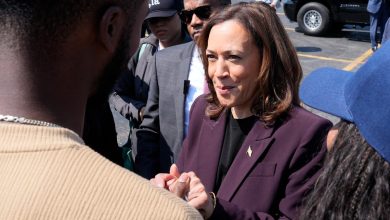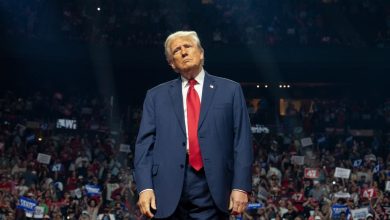JD Vance says the Republican Party is becoming pro-worker. But tonight, the RNC will feature union busters
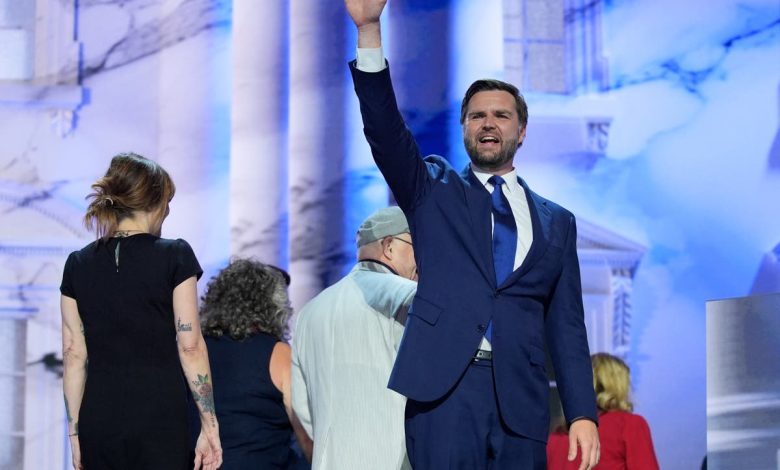
The ascension of JD Vance, first to the Senate and now asDonald Trump’s running mate, is a story that’s as much about what the Republican Party does not represent as it is a story about the GOP’s evolution.
Wednesday night at the Republican National Convention (RNC) in Milwaukee was wholly oriented around Trump’s vice president. In Vance, Trump has chosed a self-proclaimed economic populist as his partner — a strategic pick aimed at shoring up support in key areas of the Rust Belt, and other communities where manufacturing and energy are critical.
Vance, a one-term senator from Ohio, has been in the Senate for just a year and a half. In that time, he staked out his position as a clear outlier from the conservative mainstream with actions including an appearance on a United Autoworkers picket line and support for a railworkers union’s bargaining efforts over paid sick leave.
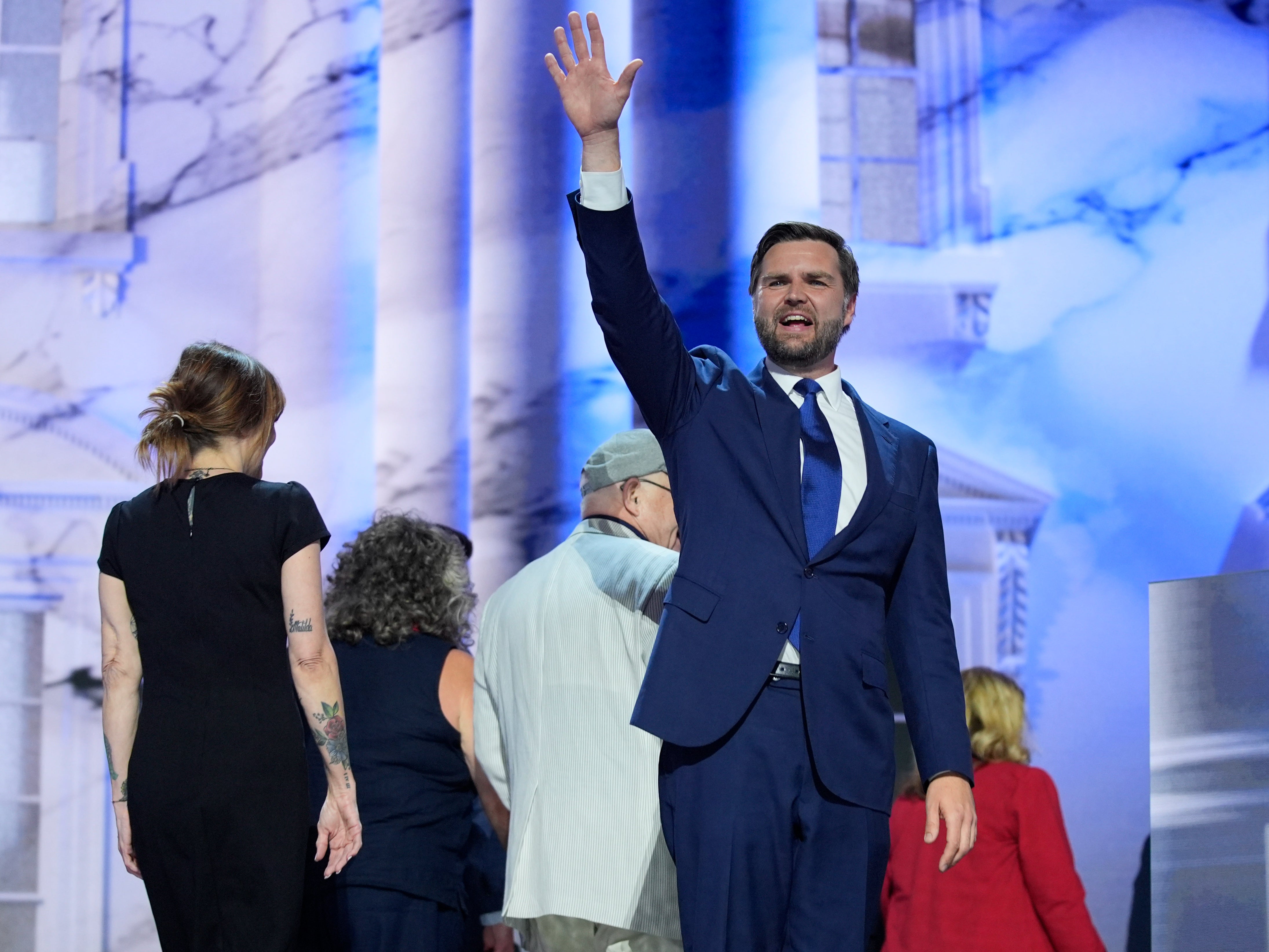
It’s clear that Donald Trump wants to capture some of that energy. Whether he can convince voters, while much of his party remains publicly skeptical of Vance’s positions, is another story.
If the final night’s programming at the RNC is any indication, that dispute is not going away any time soon. Thurday night’s primetime speaker list features, among others like Hulk Hogan and Trump himself, a famous union-buster: World Wrestling Entertainment (WWE) co-founder Linda McMahon, with her husband.
A two-time losing Senate candidate in the 2010s, McMahon is a prime example of the GOP’s internal struggle over labor issues. She’s not just a Trump supporter, she served in his administration as head of the Small Business Administration.
In a second Trump term, she could be a key voice advising on issues of economic policy, and therein lies the problem for the populists.
That problem? She’s overtly opposed to many of the policies and progress made by America’s labor movement, including raising the minimum wage, which she has said could even be lowered.
McMahon is responsible for directing the WWE’s efforts to kill a union drive led by none other than former wrestler-turned-governor Jesse Helms, before his entrance into politics. Hogan, at the time a member of the league, was her ally in this regard.
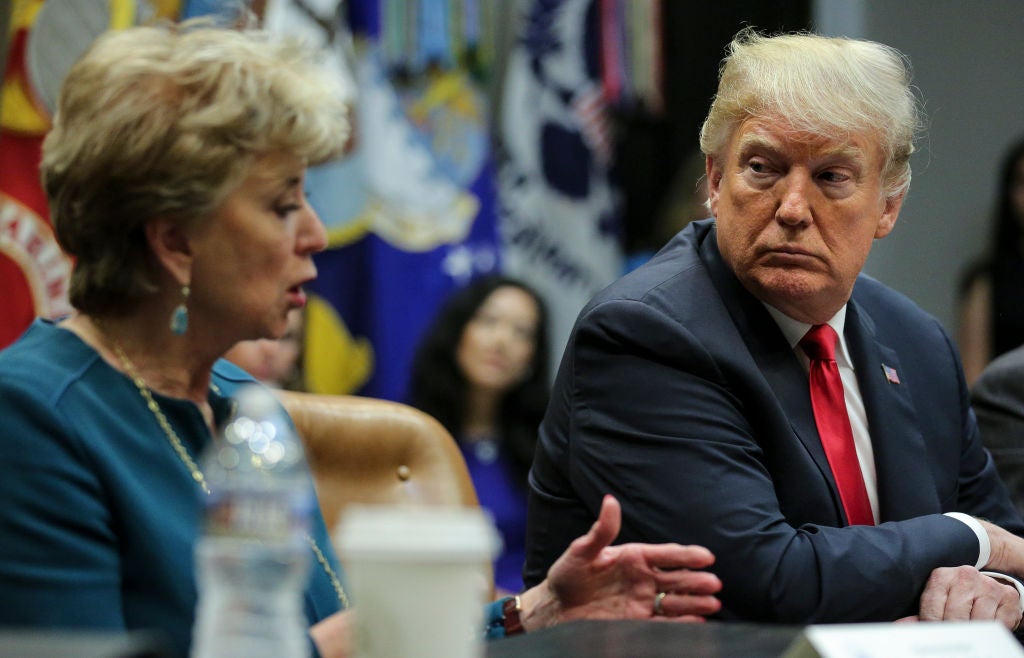
She also fought back hard against one of the most pressing issues in sports: the public campaign to protect athletes from injury.
During her Senate confirmation hearing in 2017, the Washington Post reported that McMahon “was instrumental in convincing state legislatures that professional wrestling should be treated as entertainment instead of as a sport. As a result, WWE bypassed safety regulations.”
The Independent has contacted McMahon to inquire whether she still holds these views, and if she expects a political appointment if Trump is re-elected.
Vance, 39, is one of the fastest-rising stars in the Republican Party. His selection as Trump’s running mate was a massive coup over two others from the party’s more labor-hostile wing: Senators Tim Scott and Marco Rubio. Both also spoke at the RNC this week.
In Vance’s speech on Wednesday, he inferred that a Trump administration would stand up for union workers, while also taking a cue from populists on the left who have railed against corporate greed.
“We need a leader who’s not in the pocket of big business, but answers to the working man, union and nonunion alike. A leader who won’t sell out to multinational corporations, but will stand up for American companies and American industry,” Vance said.
“We’re done, ladies and gentlemen, catering to Wall Street. We’ll commit to the working man.”
But in the end, it may be Vance who ends up evolving his views, rather than the rest of the GOP establishment.
Signs of Vance’s shifting position were already playing out in Washington. A day before he was announced as Trump’s running mate, the Ohio senator quietly dropped his support for a bill he had co-sponsored, which would have lowered credit card transaction fees for merchants, including small businesses and restaurants.
Despite the senator blaming Visa and Mastercard last year for their “stranglehold” on the credit card industry harming workers, Rep. Andy Barr, member of the House Financial Services Committee, told Politico this week that Vance was backing away from his “misguided” opinion.






